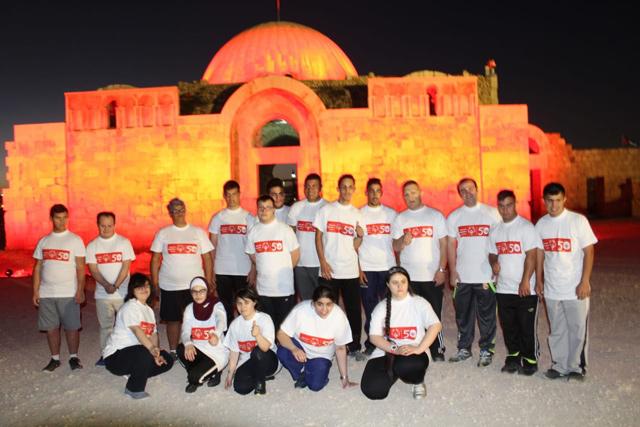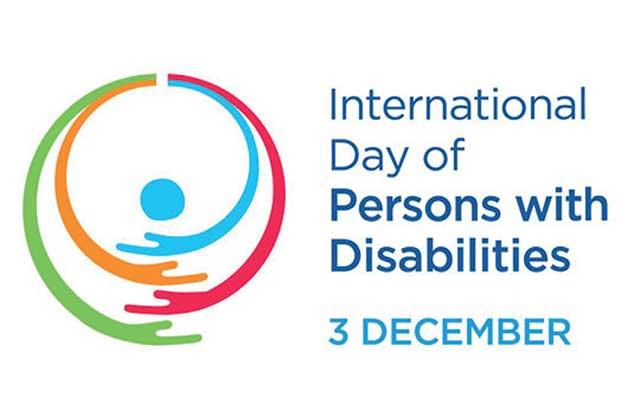You are here
'Loud call' for support to prevent intellectual disabilities — society
By Ana V. Ibáñez Prieto - Oct 07,2018 - Last updated at Oct 07,2018
AMMAN — The Jordan Phenylketonuria (PKU) Society on Wednesday sent a “loud call” for all stakeholders in the Kingdom to further support preventing intellectual disabilities, warning that if not treated early, PKU can lead to neurodevelopmental disorders and general learning disabilities.
First reported in 1934 by Norwegian physician Ivar Asbjørn Følling, PKU is an inherited disorder that increases the levels of a substance called phenylalanine in the blood. If not treated through strict low protein diet, phenylalanine can build up to harmful levels in the body, causing intellectual disability and other serious health problems, according to a paper issued by the World Health Organisation.
Sana Al Hait, medical adviser and deputy head of the Jordan Phenylketonuria Society, told The Jordan Times that when a patient affected with PKU eats food with regular levels of protein, unprocessed phenylalanine will accumulate in the bloodstream and poison brain cells, leading to “severe” intellectual and learning disabilities.
“Because of this, it is essential to diagnose the disease in the very first few days after birth so that the child can be treated through a special formula,” the doctor stressed, explaining that when the child grows up, the formula must be combined with several low protein items in order to maintain other nutritious items such as carbohydrates, fat, minerals and vitamins.
In this regard, the doctor pointed out that PKU in Jordan affects one out of every 4,500 newborns, warning that “if we [the Jordan Phenylketonuria Society] are not able to keep on supporting them, all of them will be eventually affected by intellectual and learning disabilities”.
Headed by Saleh Addabbagh, the Jordan Phenylketonuria Society stores special low protein food manufactured in the UK and offers it free of charge to parents of PKU patients, Al Hait said, noting that the items provided by the society are not available in stores in Jordan or across the region, and patients rely upon donations to prevent the disease from developing further.
In addition, the society has developed an informative booklet for families and the community to further understand the disease and its treatment, including information on the protein and phenylalanine levels of every food item and recipes to better combine them.
For its part, the Ministry of Health offers a nationwide programme free of charge aimed at testing every single newborn across the Kingdom, to later refer the affected children to a special clinic established in 1998 to follow up with the proper treatment.
“However, the service was not free of charge until 2008,” Al Hait pointed out, noting that in previous years, the Jordan Phenylketonuria Society used to scan newborns within the extended families of affected individuals, who came to the society with advanced cases of cerebral palsy or intellectual disability.
Established in 1998 under the patronage of HRH Princess Sarvath El Hassan, the society has been exerting efforts to spread knowledge on the disease among affected families and the community through meetings, conferences and the media, seeking to decrease the incidence of intellectual and learning disabilities as a result of the disease.
“But there is still not enough awareness,” says Umm Mustafa, a mother with children affected by the disease who uses the society in order to treat them.
“We need all people in Jordan to know more about the disease and come forward to support us,” the mother said, lamenting that “the funds available are not enough to properly nourish affected children, who will end up resorting to other foodstuffs to satisfy their appetite with terrible consequences”.
“We want to extend a loud call for factories, stores and all the wealthy people in Jordan to donate for PKU patients,” Al Hait said, stressing that the Jordan Phenylketonuria Society is “the only non-governmental organisation in Jordan and the Arab region to work directly on preventing intellectual disability”.
“If the patients are not provided their special formula due to delays or the lack of funds, every single day counts for their intelligence quotient (IQ) to not decrease,” the doctor stressed, lamenting that if the IQ level falls below 70, the damage is most likely irreversible.
Related Articles
AMMAN — Ten-year educational and social plans for the inclusion of people with physical and intellectual disability will kick off by the thi
Researchers in the US say they have developed a prototype blood test that can tell with 90-per cent accuracy whether a healthy person will develop Alzheimer’s disease within three years.
AMMAN — The International Day of Persons with Disabilities, which falls annually on December 3, this year is commemorated under the theme “B


















